06 Apr2021
By Nicole Dunn

With the exacerbation of our nation’s teacher shortage brought on by the pandemic, the new White House administration will need to address this crisis strategically, keeping equity top of mind. As AACTE looks forward to improving the capacity and representation in the teacher workforce, it is essential for policy makers to tie decisions back to the historical context of structural oppression that has created barriers for a diverse teacher workforce in the past. As part of the AACTE Network Improvement Community (NIC) Black and Hispanic/Latino Male Teacher Initiative, NIC members identified a number of barriers and solutions to these obstacles, which are highlighted in Reducing Barriers, a segment of AACTE’s new NIC video case studies series.
06 Apr2021
By Jane E. West
 This blog post is written by AACTE consultant Jane West and is intended to provide updated information. The views expressed in this post do not necessarily reflect the views of AACTE.
This blog post is written by AACTE consultant Jane West and is intended to provide updated information. The views expressed in this post do not necessarily reflect the views of AACTE.
President Biden Unveils Massive Infrastructure Bill with Billions for Education
On Wednesday, President Biden took his first steps towards a months-long sprint to pass a $2.5 trillion infrastructure and jobs bill. The robust plan includes an emphasis on rebuilding America’s schools, broadband access, and increasing access to Community Colleges. Biden is proposing $100 billion to help repair crumbling classrooms and build new public school buildings. The plan includes $50 billion in direct grants for school construction and an additional $50 billion through bonds. The allocation is slightly less than what House Democrats have proposed in their school construction legislation. The bill, H.R. 604 (117), introduced by House Education and Labor Chair Bobby Scott (D-VA) calls for $100 billion in direct grants and another $30 billion in interest subsidies on bonds that states or school districts issue to pay for school construction. The President’s plan also has provisions aimed at allowing schools to reduce their greenhouse gas emissions and other environmental policies, including helping school kitchens “go green by reducing or eliminating the use of paper plates and other disposable materials,” according to a White House fact sheet.
06 Apr2021
By Jerrica Thurman
Plan now to attend AACTE’s signature events, Leadership Academy and Washington Week, to be held virtually this year. Engage with fellow education administrators and AACTE members to discuss critical, timely issues in educational leadership, and join your colleagues from around the country to advocate for the profession on Capitol Hill. These are two popular conferences, so mark your calendar today!

04 Apr2021
By Meghan Grenda

Whether you are back on campus or still in your home office, you can create a workspace that suits your unique needs. You may spend 40-plus hours on the job every week –why not feel good while you’re there?
Your new AACTE Office Depot Savings Program can help make it easy to shop and upgrade your office furniture, facilities, technology, and printing needs or any of your other work from anywhere necessities, while saving time and money. Your AACTE membership allows you to save up to 75% on regular prices, free delivery on qualifying orders of $50, and much more! Start shopping online and save with Office Depot: business.officedepot.com/AACTE.
03 Apr2021
By Mandi Jo John
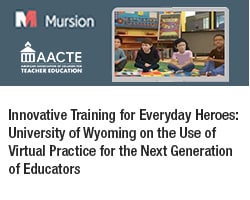 The newest installment of the AACTE and Mursion Education Roundtable series features high school students using virtual reality (VR) to demonstrate their curriculum-building skills for a chance to earn a scholarship. The roundtable discussion, Innovative Training for Everyday Heroes: University of Wyoming on the use of Virtual Practice for the next Generation of Educators, will take place on April 13 at 1:00 p.m. ET.
The newest installment of the AACTE and Mursion Education Roundtable series features high school students using virtual reality (VR) to demonstrate their curriculum-building skills for a chance to earn a scholarship. The roundtable discussion, Innovative Training for Everyday Heroes: University of Wyoming on the use of Virtual Practice for the next Generation of Educators, will take place on April 13 at 1:00 p.m. ET.
Sue Wiley, business development director for education at Mursion, will host Lindsay Freeman and Colby Gull from the University of Wyoming to discuss the WYTeach Contest. During the session, the group will discuss this innovative project and how the team is using Mursion VR Simulations to recreate the classroom environment and replicate a real-world teaching experience.
03 Apr2021
By The Wallace Foundation
Learn about the findings from a new, comprehensive study commissioned by The Wallace Foundation, The Role of Assistant Principals: Evidence and Insights for Advancing School Leadership. Based on two decades of research, the synthesis focuses on a role that is increasingly prevalent but often overlooked. The report suggests APs could become a more powerful force in advancing equity, student outcomes, and school leadership goals.
The Role of Assistant Principals: A New Synthesis Offers Evidence and Insights
Tuesday, April 13, 2021 from 1:00 – 2:00 p.m. ET via Zoom
We invite you to register for this important, one-hour event.
03 Apr2021
By Anne Tapp Jaksa
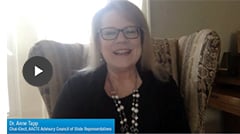 My name is Anne Tapp, and I was recently elected to represent you on the AACTE Board of Directors. On behalf of the Board, I would like to thank American Association of Colleges for Teacher Education for its ongoing support of AACTE.
My name is Anne Tapp, and I was recently elected to represent you on the AACTE Board of Directors. On behalf of the Board, I would like to thank American Association of Colleges for Teacher Education for its ongoing support of AACTE.
The year 2020 was a difficult one for all of us, but I am more confident than ever that AACTE provided the tools, resources, and network opportunities I needed to succeed this past year. Specifically, the new AACTE resources below helped me and my colleagues navigate challenges we had never experienced before:
30 Mar2021
By Gaelle Gilbert
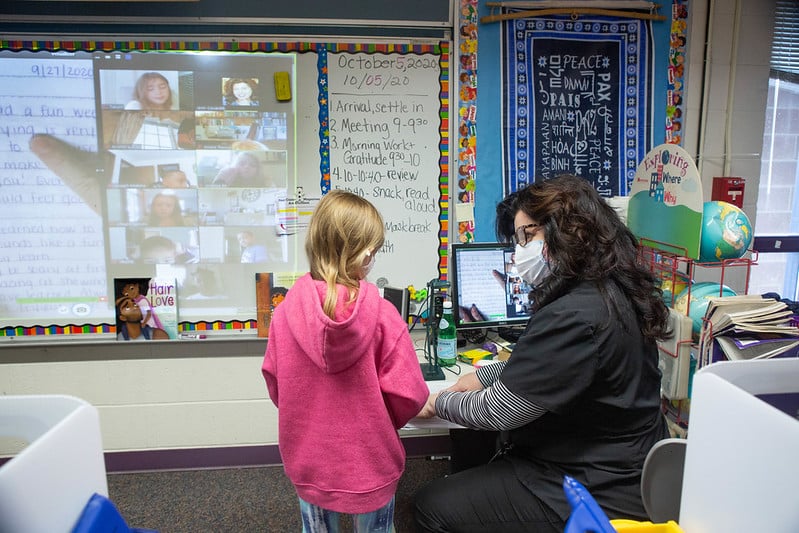 AACTE was recently cited in the New York Times article, “As Pandemic Upends Teaching, Fewer Students Want to Pursue It,’ published in the weekend digital and print edition. NYT writer Emma Goldberg highlights AACTE’s findings from its member survey and includes quotes from Board members Marvin Lynn and Marquita Grenot-Scheyer, David Chard from AACTE-member institution Boston University Wheelock School of Education, as well as students from two other AACTE member institutions.
AACTE was recently cited in the New York Times article, “As Pandemic Upends Teaching, Fewer Students Want to Pursue It,’ published in the weekend digital and print edition. NYT writer Emma Goldberg highlights AACTE’s findings from its member survey and includes quotes from Board members Marvin Lynn and Marquita Grenot-Scheyer, David Chard from AACTE-member institution Boston University Wheelock School of Education, as well as students from two other AACTE member institutions.
The article references AACTE’s two-part member survey that chief representatives of its member institutions responded to about how the twin crises of COVID-19 and racial injustice had affected their educator preparation programs and how they have responded to these crises. The results were included in a report by Jacqueline King released in February.
30 Mar2021
By Gaelle Gilbert
During the Washington Post Live’s webinar, “U.S. Higher Education: Rethinking the Possibilities,” AACTE’s Dean in Residence Leslie Fenwick, dean emeritus of Howard University School of Education, was interviewed by Eugene Scott as the first of the two guests. The interview was comprised of questions covering different facets of the education space including policy, diversity, student loans, and the pandemic.
The first question addressed President Joe Biden and what Fenwick believed should be his top priority in regard to education policy. Fenwick response focused on embracing a new and more diverse student population both in the workforce and higher education. She delved into specifics of the increasing majority of non-White students in public schools beginning in 2018 and continuing on an upward trajectory.
30 Mar2021
By Jane E. West
 This blog post is written by AACTE consultant Jane West and is intended to provide updated information. The views expressed in this post do not necessarily reflect the views of AACTE.
This blog post is written by AACTE consultant Jane West and is intended to provide updated information. The views expressed in this post do not necessarily reflect the views of AACTE.
Biden Administration: COVID Funds, School Reopening, FY 2022 Budget Proposal
Last week, on the heels of the National Safe School Reopening Summit , President Biden announced that $81 billion of American Rescue Plan Act (ARPA) funds would be released to all 50 States, the District of Columbia, and the Commonwealth of Puerto Rico. The funds will support efforts to get students back in the classroom safely for in person learning, keep schools open once students are back, and address the academic, social, emotional, and mental health needs of all students.
Ahead of the Summit, U.S. Secretary of Education Miguel Cardona announced the launch of a new Summer Learning & Enrichment Collaborative, a partnership between the Department, the Council of Chief State School Officers, and the National Governors Association. The partnership is intended to help states use ARPA funding to develop high-quality summer learning and enrichment programs for all students, with a focus on addressing the needs of student groups disproportionately affected by COVID-19. The announcements are part of the Biden-Harris Administration’s broader effort to provide states, schools, and communities with the resources and support they need to return to in-person learning safely and quickly, and achieve the President’s goal of reopening the majority of K-8 schools within the first 100 days of his Administration. Cardona also announced that as part of this effort, he will travel to local school districts over the coming weeks to listen and learn from them, and to help more schools and districts in their efforts to reopen and stay open. The Secretary will then report back to the White House on what he learns.
30 Mar2021
By Bart Epstein
The U.S. federal government, states, and school districts collectively spend between $26 and $41 billion per year on education technology materials, according to a new analysis released today by a coalition of education nonprofits led by the EdTech Evidence Exchange. These estimates reflect a troubling lack of understanding about how much the country actually spends on edtech, and also suggest that even according to the lowest estimates, the country spends at least twice the $13 billion figure often previously cited by industry analysts and policymakers.
“We are spending billions of dollars on technology with almost no information about which tools actually work, where, and why,” said Bart Epstein, CEO of the EdTech Evidence Exchange and a research associate professor at the University of Virginia School of Education and Human Development. “We know that technology can have a profound impact on educational outcomes, but thousands of tools and programs used by schools are creating confusion for educators and administrators, not to mention students and parents. When poorly selected or implemented, they waste teacher time and energy and rob students of learning opportunities. Making good on the transformative potential of education technology starts with listening to, and learning from, people who are actually using it.”
29 Mar2021
By Ann Marie Wernick
 The 73rd AACTE Annual Meeting held a Deeper Dive session focusing on the edTPA teacher performance assessment. This session illuminated a variety of ways edTPA is being used and the multiple goals it is intended to achieve, including, a standardized measure of program quality, a high stakes teacher assessment for licensure, a performance screen for teacher quality, a professionalization tool, and a curriculum development framework for teacher preparation programs (TPPs).
The 73rd AACTE Annual Meeting held a Deeper Dive session focusing on the edTPA teacher performance assessment. This session illuminated a variety of ways edTPA is being used and the multiple goals it is intended to achieve, including, a standardized measure of program quality, a high stakes teacher assessment for licensure, a performance screen for teacher quality, a professionalization tool, and a curriculum development framework for teacher preparation programs (TPPs).
AACTE’s new Board Chair Robert Floden, from Michigan State University, served as the moderator for the session and began by acknowledging outcome measures—such as edTPA—are used to measure teacher preparation quality for a variety of purposes including accountability, teacher learning, and program improvement. Further, he provided meaningful background about edTPA and how it was developed as an outcome measure that was closely related to teacher practice. Since 2013, edTPA has grown and been implemented in 41 states and the District of Columbia. This session pulled on the expertise of five researchers and highlights some of the affordances and barriers this performance assessment has for TPPs, teacher educators, and teacher candidates.
Cap Peck of the University of Washington began the session by recognizing there are both risks and opportunities associated with edTPA. In particular, he discussed the opportunity and value of using edTPA as a resource for program evaluation and improvement because it provides a common language to discuss practice, make comparisons, and see differences to make improvements within TPPs. He emphasized that in order to foster continuous improvement, organizational policies and practices need to support collective and collaborative program improvement.
Next, Drew Gitomer of Rutgers University discussed the need for a moratorium on the use of edTPA in the context of a high stake’s licensure exam. He drew on the failure to meet several key measurement expectations during his explanation for why edTPA should not be used for licensure. The three key components included
- Reliability is not reported
- Precision is not estimated in an acceptable manner
- Passing scores and passing rates are substantially different across licensure areas
Then Julie Cohen of the University of Virginia continued the conversation as she focused on the degree to which licensure tests, such as edTPA, inform teacher preparation curriculum. She discussed the complexity of this work, with a specific focus on implementation at the program
level and not at the institutional level. Further, she discussed equity implementations for candidates and the consequential ways variation between programs effects candidates in their programs and for licensure.
As the discussion progressed, Craig De Voto of the University of Illinois at Chicago discussed how TPPs have made sense of and responded to varied edTPA policy designs and contexts. He and his colleagues found that edTPA became a tool used for inquiry or compliance across teacher preparation programs. He proceeded to talk about the good, bad, and ugly findings from implementation of this tool. First, the good results they found were cross departmental collaboration, continuous program improvement, coherent foundation for field (e.g., academic language, teaching pedagogy, differentiation and assessment), and external legitimacy as a professionalization tool. The bad results they found were implementation challenges, particularly when mandated and philosophical challenges with equity and social justice. Finally, the ugly they found were divergent views of edTPA as a professionalization tool across the field with some teacher educators viewing it at as a de-professionalization tool.
To conclude the panel, Beth Kubitskey of Eastern Michigan University reflected on her experience implementing edTPA. She discussed her view of edTPA as a process that helped novice teachers provide a commentary linking their learning to their classes. Additionally, she and her colleagues were able to implement and use edTPA in a way that was educative for their students.
Overall, during the discussion, the panelists reiterated the many uses of edTPA and how it is being used across states and institutions. They further acknowledged the complexity of this work and the divergent responses and reactions by teacher educators and teacher candidates within institutions and organizations. At the end of the panel discussion, one participant asked, “Do you think this policy is a good or bad thing?” Fittingly, a panelist replied, “Well, it depends.”
Ann Marie Wernick, is a Ph.D. student at Southern Methodist University and AACTE research, policy, and advocacy intern.
29 Mar2021
By Leslie Ekpe
 Congratulations to Ayan Mitra on being named the March Holmes Scholar of the Month. Mitra recently defended his dissertation, titled “Exploring Neurocognitive Processes that Underline Reading Performance in Children: A Foundational Study.” His other research agenda attempts to bridge the gap between education and neuroscience. Mitra strives to understand how connectivity across different regions of the brain (coherence) is predictive of reading measures in widely used cognitive reading assessments. With rapidly evolving neuroimaging techniques providing better spatial and temporal resolution to brain imaging, it is increasingly important for literacy scholars to theorize the neural basis of reading.
Congratulations to Ayan Mitra on being named the March Holmes Scholar of the Month. Mitra recently defended his dissertation, titled “Exploring Neurocognitive Processes that Underline Reading Performance in Children: A Foundational Study.” His other research agenda attempts to bridge the gap between education and neuroscience. Mitra strives to understand how connectivity across different regions of the brain (coherence) is predictive of reading measures in widely used cognitive reading assessments. With rapidly evolving neuroimaging techniques providing better spatial and temporal resolution to brain imaging, it is increasingly important for literacy scholars to theorize the neural basis of reading.
29 Mar2021
By Linda Minor
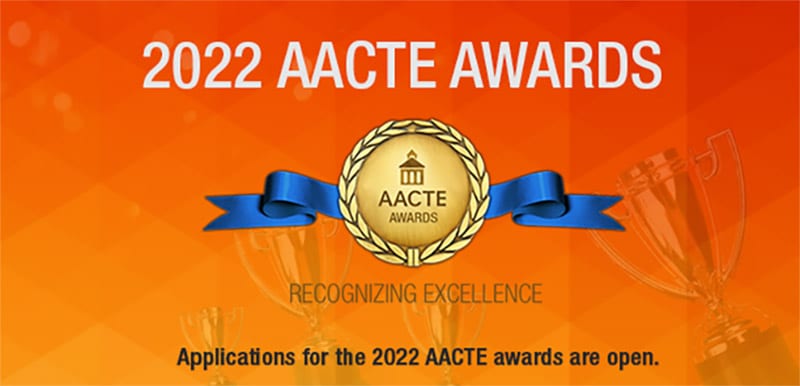 Do know someone who has written an exemplary book that makes a significant contribution to the knowledge base of educator preparation or of teaching and learning with implications for educator preparation? Applications for AACTE’s 2022 Outstanding Book Award are being accepted in our online submission system now through May 14, 2021.
Do know someone who has written an exemplary book that makes a significant contribution to the knowledge base of educator preparation or of teaching and learning with implications for educator preparation? Applications for AACTE’s 2022 Outstanding Book Award are being accepted in our online submission system now through May 14, 2021.
This award is reviewed by the AACTE Committee on Research and Dissemination. The award-winning book and its author/editor(s) will receive special recognition at AACTE’s 74th Annual Meeting in New Orleans, Louisiana, March 4-6, 2022.
26 Mar2021
By AACTE
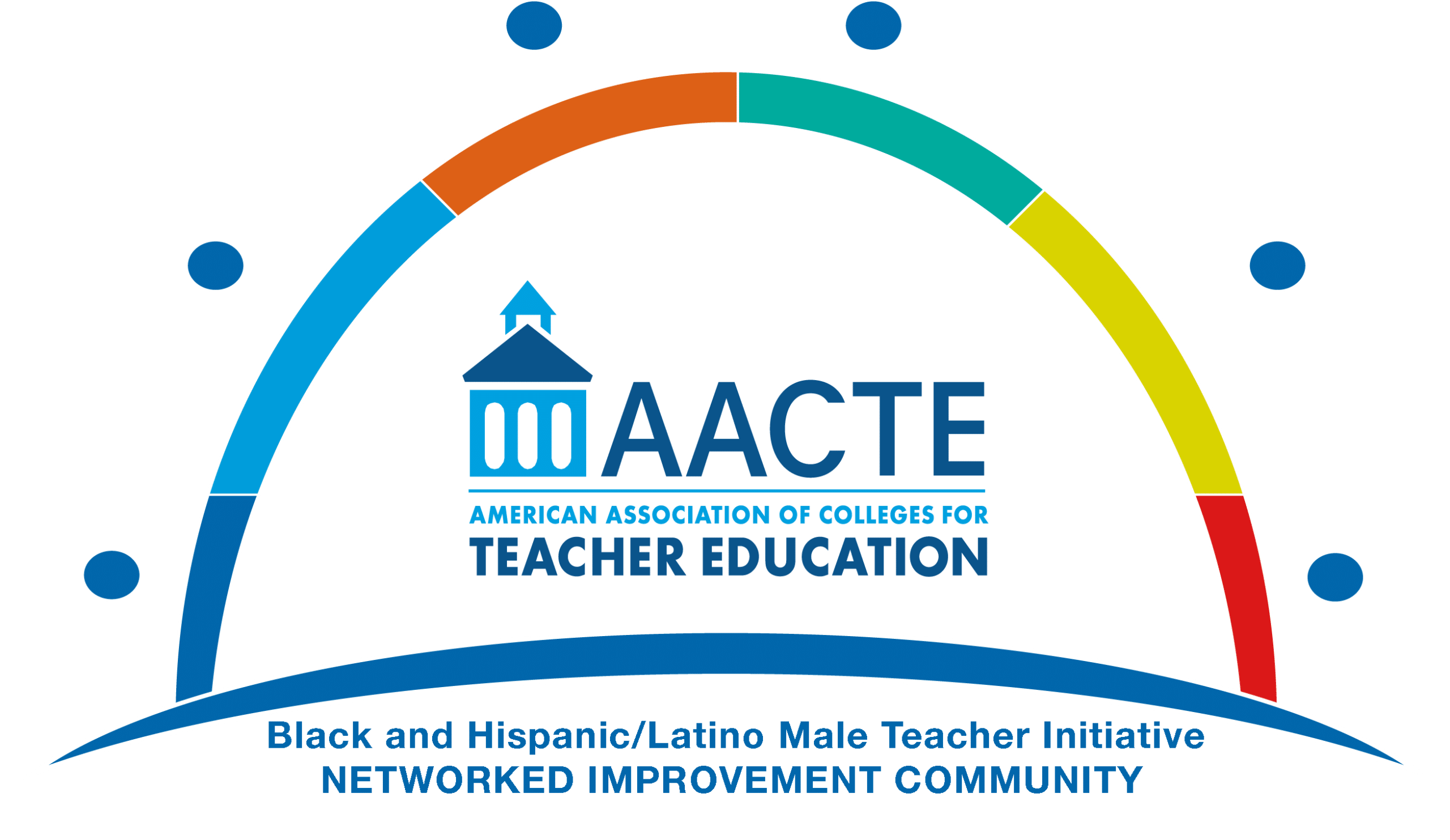
The American Association of Colleges for Teacher Education (AACTE) released today its new video series featuring promising practices for recruiting and retaining male teachers of color. AACTE created the Black and Hispanic/Latino Male Teacher Initiative Networked Improvement Community (NIC), which included a 5-year study by 10 AACTE member institutions that implemented improvement science to address the shortage crisis of Black and Hispanic/Latino profession-ready male teachers. Key findings from their research are featured in the video case studies, where the NIC participants present their experiences and lessons learned. NIC members describe effective ways for reducing barriers, developing partnerships, building recruitment pathways, providing mentorship, and offering faculty training to diversify the profession.



 This blog post is written by AACTE consultant Jane West and is intended to provide updated information. The views expressed in this post do not necessarily reflect the views of AACTE.
This blog post is written by AACTE consultant Jane West and is intended to provide updated information. The views expressed in this post do not necessarily reflect the views of AACTE. 

 The newest installment of the AACTE and Mursion Education Roundtable series features high school students using virtual reality (VR) to demonstrate their curriculum-building skills for a chance to earn a scholarship. The roundtable discussion, Innovative Training for Everyday Heroes: University of Wyoming on the use of Virtual Practice for the next Generation of Educators, will take place on April 13 at 1:00 p.m. ET.
The newest installment of the AACTE and Mursion Education Roundtable series features high school students using virtual reality (VR) to demonstrate their curriculum-building skills for a chance to earn a scholarship. The roundtable discussion, Innovative Training for Everyday Heroes: University of Wyoming on the use of Virtual Practice for the next Generation of Educators, will take place on April 13 at 1:00 p.m. ET.
 AACTE was recently cited in the New York Times article, “As Pandemic Upends Teaching, Fewer Students Want to Pursue It,’ published in the weekend digital and print edition. NYT writer Emma Goldberg highlights AACTE’s findings from its member survey and includes quotes from Board members Marvin Lynn and Marquita Grenot-Scheyer, David Chard from AACTE-member institution Boston University Wheelock School of Education, as well as students from two other AACTE member institutions.
AACTE was recently cited in the New York Times article, “As Pandemic Upends Teaching, Fewer Students Want to Pursue It,’ published in the weekend digital and print edition. NYT writer Emma Goldberg highlights AACTE’s findings from its member survey and includes quotes from Board members Marvin Lynn and Marquita Grenot-Scheyer, David Chard from AACTE-member institution Boston University Wheelock School of Education, as well as students from two other AACTE member institutions. This blog post is written by AACTE consultant Jane West and is intended to provide updated information. The views expressed in this post do not necessarily reflect the views of AACTE.
This blog post is written by AACTE consultant Jane West and is intended to provide updated information. The views expressed in this post do not necessarily reflect the views of AACTE.  The 73rd AACTE Annual Meeting held a Deeper Dive session focusing on the edTPA teacher performance assessment. This session illuminated a variety of ways edTPA is being used and the multiple goals it is intended to achieve, including, a standardized measure of program quality, a high stakes teacher assessment for licensure, a performance screen for teacher quality, a professionalization tool, and a curriculum development framework for teacher preparation programs (TPPs).
The 73rd AACTE Annual Meeting held a Deeper Dive session focusing on the edTPA teacher performance assessment. This session illuminated a variety of ways edTPA is being used and the multiple goals it is intended to achieve, including, a standardized measure of program quality, a high stakes teacher assessment for licensure, a performance screen for teacher quality, a professionalization tool, and a curriculum development framework for teacher preparation programs (TPPs). Congratulations to Ayan Mitra on being named the March Holmes Scholar of the Month. Mitra recently defended his dissertation, titled “Exploring Neurocognitive Processes that Underline Reading Performance in Children: A Foundational Study.” His other research agenda attempts to bridge the gap between education and neuroscience. Mitra strives to understand how connectivity across different regions of the brain (coherence) is predictive of reading measures in widely used cognitive reading assessments. With rapidly evolving neuroimaging techniques providing better spatial and temporal resolution to brain imaging, it is increasingly important for literacy scholars to theorize the neural basis of reading.
Congratulations to Ayan Mitra on being named the March Holmes Scholar of the Month. Mitra recently defended his dissertation, titled “Exploring Neurocognitive Processes that Underline Reading Performance in Children: A Foundational Study.” His other research agenda attempts to bridge the gap between education and neuroscience. Mitra strives to understand how connectivity across different regions of the brain (coherence) is predictive of reading measures in widely used cognitive reading assessments. With rapidly evolving neuroimaging techniques providing better spatial and temporal resolution to brain imaging, it is increasingly important for literacy scholars to theorize the neural basis of reading. Do know someone who has written an exemplary book that makes a significant contribution to the knowledge base of educator preparation or of teaching and learning with implications for educator preparation? Applications for AACTE’s 2022
Do know someone who has written an exemplary book that makes a significant contribution to the knowledge base of educator preparation or of teaching and learning with implications for educator preparation? Applications for AACTE’s 2022 